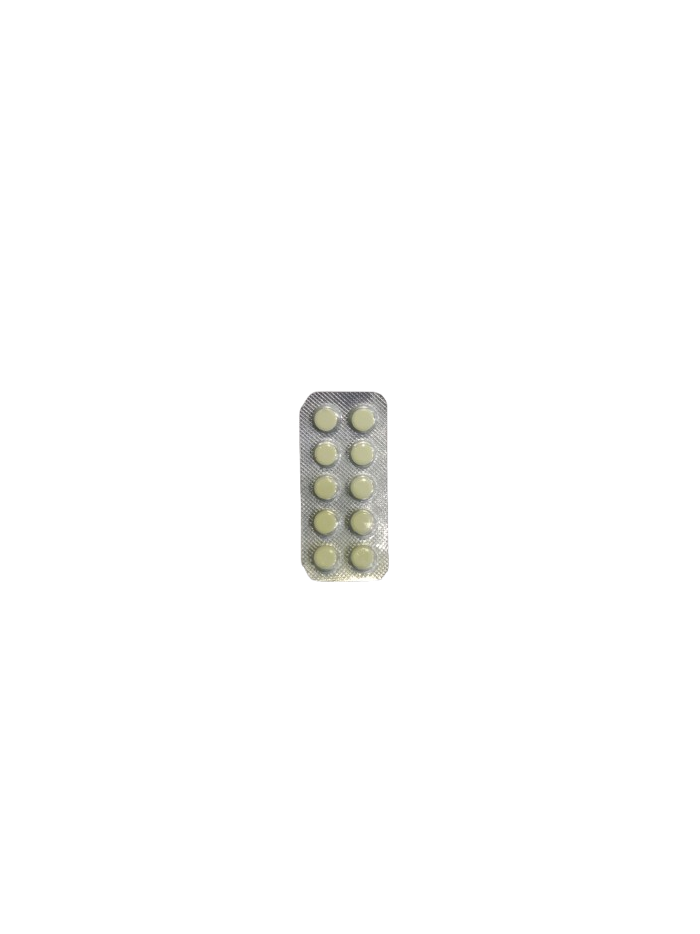GLIMICURE 1MG
 5 % OFF
5 % OFF
Description
Glimicure 1mg Tablet is an antidiabetic medication belonging to the sulfonylurea class, used to reduce elevated blood sugar levels in individuals with Type 2 diabetes mellitus (non-insulin-dependent diabetes mellitus - NIDDM). Type 2 diabetes occurs when the body either does not produce enough insulin or when the insulin produced is not utilized effectively. Insulin is essential for regulating blood sugar levels, particularly after meals. Glimicure 1mg Tablet contains Glimepiride, which works by stimulating beta cells in the pancreas to release insulin. It activates calcium channels within these cells, allowing insulin to be released into the bloodstream. This insulin then facilitates glucose absorption by body cells, thereby lowering blood sugar levels and preventing diabetes-related symptoms.
 All the items have been securely packed and stored
All the items have been securely packed and stored
Product Details
Glimicure 1mg Tablet belongs to a class of medicines called sulfonylureas and is used to manage type 2 diabetes mellitus in adults. It helps regulate blood sugar levels, reducing the risk of diabetes-related complications such as kidney damage and vision loss. This medication can be taken alone or in combination with other diabetes medicines. It should be taken just before or with the first meal of the day at the same time daily for the best results. Your doctor will determine the appropriate dosage based on your blood sugar levels, which may be adjusted periodically. Even if you feel well or have controlled blood sugar levels, continue taking Glimicure 1mg Tablet as prescribed. Stopping it without consulting your doctor could result in elevated blood sugar levels, increasing the risk of complications such as kidney disease, nerve problems, blindness, or limb loss. Along with medication, maintaining a healthy lifestyle—including a balanced diet, regular exercise, and weight management—is crucial for effective diabetes control. Common side effects include hypoglycemia (low blood sugar), nausea, headache, weakness, and dizziness. It is important to recognize symptoms of low blood sugar, such as sweating, dizziness, headache, and tremors, and know how to manage them. Regular meals and carrying a fast-acting source of glucose, such as sugary food or fruit juice, can help prevent hypoglycemia. Alcohol consumption should be avoided, as it can increase the risk of low blood sugar. Some individuals may also experience weight gain while taking this medication. Who Should Avoid Glimicure 1mg Tablet? People with type 1 diabetes mellitus Those with diabetic ketoacidosis (a serious condition with high blood acid levels) Patients with severe kidney or liver disease Before starting this medication, inform your doctor if you have a history of heart disease, thyroid disorders, or other hormonal imbalances, as it may not be suitable. Pregnant or breastfeeding women should seek medical advice before using this medication. Regular monitoring of blood sugar levels, blood cell counts, and liver function may be required.
Uses of Product
Mainly uses in Type 2 diabetes mellitus
Direction For Use
Take Glimicure 1mg Tablet in the dose and duration prescribed by your doctor. Swallow it whole without chewing, crushing, or breaking it. It should always be taken with food.
Side Affects
Most side effects of Glimicure 1mg Tablet do not require medical attention and tend to subside as your body adjusts to the medication. However, if they persist or cause concern, consult your doctor. Common Side Effects of Glimicure 1mg Tablet: Hypoglycemia (low blood sugar) Headache Nausea Dizziness Weakness
Safety Advices
Alcohol – Unsafe Consuming alcohol while taking Glimicure 1mg Tablet is unsafe. Pregnancy – Consult Your Doctor Limited human studies are available, but animal research suggests possible harm to the developing baby. Your doctor will assess the benefits and risks before prescribing this medication during pregnancy. Breastfeeding – Consult Your Doctor Glimicure 1mg Tablet may not be safe during breastfeeding, as some amount of the drug could pass into breast milk and affect the baby. Monitoring the infant’s blood sugar levels is recommended. Driving – Use Caution Driving may be unsafe if your blood sugar becomes too high or too low. Avoid driving if you experience symptoms like dizziness or confusion. Kidney – Use with Caution Patients with kidney disease should use Glimicure 1mg Tablet cautiously, as dose adjustments may be required. In severe kidney disease, this medicine is not recommended due to the risk of prolonged low blood sugar episodes. Consult your doctor for guidance. Liver – Use with Caution Glimicure 1mg Tablet should be used carefully in patients with liver disease, as dose adjustments may be necessary. However, it is not recommended for individuals with severe liver conditions. Consult your doctor for further advice.
Additional Details
Store below 30°C in room temperature
Disclaimer
The contents of this website are for informational purposes only and not intended to be a substitute for professional medical advice, diagnosis, or treatment. Please seek the advice of a physician or other qualified health provider with any questions you may have regarding a medical condition. Do not disregard professional medical advice or delay in seeking it because of something you have read on this website.





